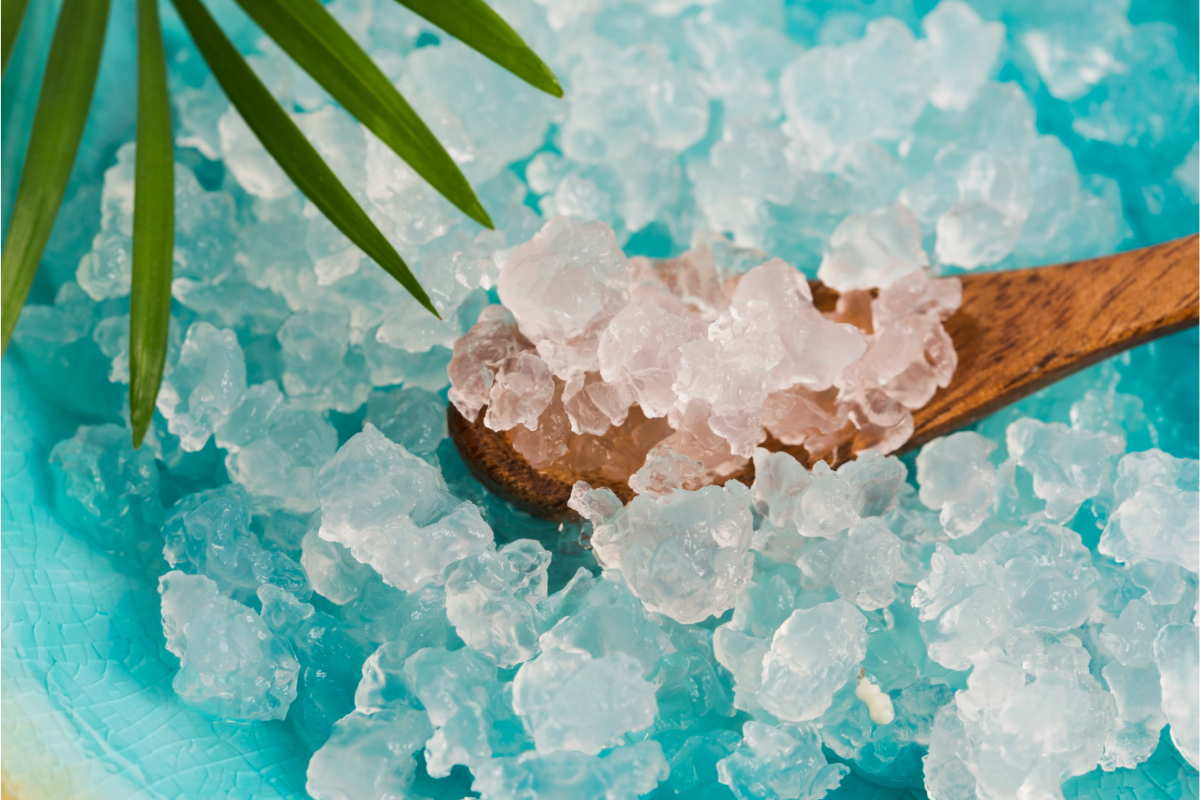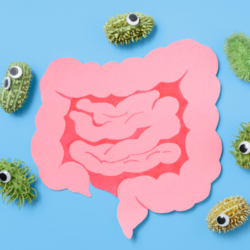In the quest for health and well-being, exploring various natural foods and drinks often offers extraordinary solutions. Water kefir, an age-old fermented beverage, is a perfect example. In this article, we’ll demystify what water kefir is, how to prepare it, and above all, discuss the many ways it can contribute to your health. Discover how this ancient beverage could be the key to your optimal well-being.
What is water kefir?
Water kefir, fruit kefir or kefir, is a type of fermented beverage. The water kefir grains traditionally used to make it are not real grains, despite their name. These “grains” are a type of SCOBY(Symbiotic Culture of Bacteria and Yeast) that ferments sugar in water, giving rise to a fizzy, slightly acidic drink packed with probiotics.
The history of water kefir
The origins of water kefir are shrouded in mystery, but it is thought to have originated in Mexico, where local people used it as a health tonic. Today, it is enjoyed the world over for its unique taste and health benefits.
What are the benefits of Kefir?
The term “probiotics” comes from the Greek words “pro”, meaning “to promote” and “biotic”, meaning “life”. Probiotics are living micro-organisms, mainly bacteria and yeasts, which, when ingested in adequate quantities, have beneficial effects on the health of the host. Probiotics are found in a variety of fermented foods and drinks, water kefir being one of the richest examples.
We tend to associate bacteria with disease and infection, but the truth is that our body is a complex ecosystem harbouring an enormous quantity of micro-organisms, commonly known as the microbiota. This microbiota, which includes both beneficial and pathogenic bacteria, plays a crucial role in our health and well-being.
Is kefir rich in probiotics?
By regularly consuming water kefir, we add an abundance of probiotics to our diet, helping to balance our intestinal microbiota. Water kefir contains a variety of probiotic strains, including Lactobacillus, Leuconostoc, Saccharomyces and many others. These probiotics work by colonising the gut, competing with pathogenic bacteria for resources and boosting the body’s natural defences against harmful invaders.
A balanced microbiota is essential for optimal digestion, better absorption of nutrients and enhanced immunity. What’s more, recent research suggests that a healthy microbiota can have beneficial effects beyond gut health, influencing everything from body weight to mood and even brain health.
Do kefir grains help digestion?
Water kefir, with its rich probiotic content, offers numerous health benefits. In particular, it has a positive impact on digestion and the immune system.
Science is increasingly recognising the role of probiotics in supporting digestive health. They work to restore and maintain the balance of the intestinal microbiota, a key factor in the proper functioning of our digestive system. By colonising the gut, probiotics can help balance the intestinal flora, offering relief for a variety of digestive disorders. For example, water kefir can be beneficial for people suffering from bloating. An overgrowth of bad bacteria in the intestine can cause this often uncomfortable condition. The probiotics present in water kefir can help to restore the balance, thereby reducing bloating.
Water kefir can also help relieve constipation, a condition characterised by infrequent bowel movements that are often difficult to pass. Probiotics can improve intestinal transit, helping to regulate the frequency of bowel movements.
Forirritable bowel syndrome (IBS), a condition characterised by abdominal pain, bloating, diarrhoea and/or constipation, water kefir can also be helpful. Although IBS is a complex condition with many potential triggers, much research has suggested that an imbalance in the gut microbiota may play a role. By adding probiotics to the diet through water kefir, it is possible to help restore this balance and relieve some of the symptoms of IBS.
Fermented drinks and immunity
As well as the benefits for digestion, this bravado is also beneficial for the immune system. In fact, the intestine plays a crucial role in our immunity. It houses a large proportion of our immune cells and acts as a barrier against potentially harmful pathogens. A healthy microbiota contributes to the health of this barrier and can help boost the overall immune response. Therefore, by regularly consuming water kefir, we can help support our immunity.
How do I make water kefir at home?
Making water kefir at home is neither complicated nor expensive. It’s a simple process that requires a few basic ingredients. Here’s a step-by-step guide to help you create your own natural probiotic drink:
- Essential ingredients: To start your kefir-making adventure, you’ll need the following: water kefir grains, sugar (cane or white sugar work well), filtered or spring water, and possibly fruit or juice for a tasty touch.
- Cleaning the kefir grains: Start by rinsing your kefir grains thoroughly in cold water. It’s important to use filtered or spring water, as the chlorine in tap water can be harmful to the grains.
- Preparing the sugar water: Dissolve 3 to 4 tablespoons of sugar in a litre of water. Make sure the water is at room temperature.
- Start fermentation: Place your kefir grains in a large glass jar. Pour the sugar water over them. Cover the jar with a cloth and a rubber band. This system allows air to circulate while preventing the intrusion of contaminants.
- Resting period: Leave your mixture to rest at room temperature for 24 to 48 hours. During this time, the kefir grains ferment the sugar, producing the delicious drink that is water kefir.
- Separating the grains from the kefir: Once fermentation is complete, filter the mixture to recover the kefir grains. These can be reused for your next water kefir preparation.
- Customise the flavour: Once you’ve filtered your kefir, you can add fruit or juice to personalise the taste. Then leave the water kefir to stand for a further day for a second fermentation. This step is optional, but it will intensify the flavour of your drink.
Now your fermented drink is ready to enjoy! To get the maximum benefit from the probiotics, consume your brew within a few days of making it. Bear in mind that each batch of fermented drink may taste slightly different, depending on the kefir grains used, the type of sugar, the length of fermentation and the added flavours. Feel free to experiment to find the combination you like best. Enjoy!
What’s the difference between water kefir and milk kefir?
Milk kefir and water kefir are two types of kefir. The main difference between the two lies in the substrate used for fermentation and the types of kefir grains used, resulting in differences in nutritional composition.
- Milk kefir milk kefir is made by using milk kefir grains to ferment milk. Milk kefir grains contain a variety of lactic acid bacteria and yeasts, resulting in a thick, tangy beverage that is very similar to drinking yoghurt. Milk kefir is rich in protein, calcium, vitamin B12, vitamin K2, probiotics and many other nutrients.
- Water kefir water kefir is made by using water kefir grains to ferment a sugar solution, usually sugar water, fruit juice or coconut. Water kefir grains are different from milk kefir grains and contain a variety of bacteria and yeasts that also differ. Water kefir is a slightly sweet fizzy drink, and although it also contains beneficial probiotics, it is not as rich in protein and calcium as milk kefir.
What’s the difference between kefir and kombucha?
Kefir and kombucha, two popular types of fermented beverage, are frequently consumed because of their potential health benefits, particularly their ability to improve intestinal health. However, despite certain similarities, they have several key differences in terms of ingredients, fermentation process and nutritional profile.
- Kombucha: Kombucha is a fermented drink made from sweet tea. To produce it, a culture of bacteria and yeast (including SCOBY) is added to the sweet tea and then left to ferment. The result is a fizzy, tangy drink, often flavoured with fruit or herbs to enhance the taste. Kombucha is rich in probiotics and also contains a small amount of B vitamins, as well as some polyphenols derived from tea.
FAQ
- Does water kefir contain gluten?
No, it does not contain gluten. The “grains” used to make it are not real cereal grains, so they do not contain gluten.
- How much water kefir should I drink every day?
There is no strict limit to the amount you can consume per day. However, as with everything, it’s best to start slowly and gradually increase your intake.
- Is water kefir safe for children and pregnant women?
Yes, it is generally safe for children and pregnant women. However, as it is a fermented product, it is best to consult a health professional before introducing it into their diet.







